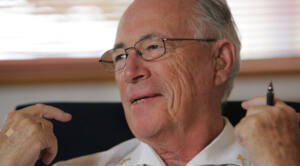
WelCom October 2024
The Vatican’s top doctrinal office published a new Declaration, on 8 April 2924, on the theme of human dignity. Entitled Declaration Dignitas Infinita, on Human Dignity, the Declaration from the Vatican’s Dicastery for the Doctrine of the Faith, addresses a range of contemporary moral and social issues.
The New Zealand Catholic bishops have announced ‘Infinite Dignity – Infinite Love’ as the theme for this year’s Support Life Sunday on 13 October, which draws on Dignitas Infinita – On Human Dignity.
Emeritus Bishop Peter Cullinane discusses the Declaration Dignitas Infinita, on Human Dignity in his article, which is published in WelCom in two parts, to coincide with the observation of Support Life Sunday. The first part was published in WelCom’s September edition, p 16 and on our website, and the second and concluding part is below.
Part Two
Need for critical thinking and empathy
Are we at risk of unnoticeably buying into deceitful catch phrases and euphemisms that are used to make the violation of human rights acceptable and ‘normal’? Abortion is described as ‘interruption of pregnancy’, and the meaning of ‘person’ is arbitrarily defined to exclude the child in the womb – regardless of what the sciences tell us.
The idea of ‘dignity’ is used to justify the direct killing of another person, and the lethal injection has been called ‘medical aid’. Restrictions on the marketing of addictive substances is described as infringing the ‘right to choose’ – by vested interests who know very well that by causing addiction, cigarettes and vapes deprive people of their freedom to opt out of their habit.
When marketeers believe we can be easily deceived by slogans and euphemisms, what does that imply about ourselves? Are they right? Under the pressures of modern living, do we just drift along with general impressions – easy prey for influencers? Are we doing enough to promote our own, and other people’s ability to think critically, which is necessary for the defence of human dignity?
Are we at risk of getting so used to the evils we condemn that we start taking them for granted? Do we need to take our condemnations of mistreatment of others to a deeper level? Do we need to rediscover the meaning of repugnance? And can we find human indignities repugnant without first having a deep appreciation of persons, for whom Jesus was willing to give his life?
What is happening to our own dignity if we fail to promote the fundamental human dignity of others and work to counter de-humanising situations?
War and other atrocities
Our anger at the barbarities of war is justified. But we cannot just stop there. Do we too easily succumb to the idea there is nothing we can do about it? As citizens, it is for all of us to insist our government supports those international institutions that are intended to protect peace and justice – and condemn ways in which their effectiveness is being blocked by countries for their own political ends.
If the taking of human lives becomes acceptable, it will be even easier to ‘normalise’ other violations of human dignity. Does our ‘throwaway culture’ spill over to an idea, even at the back of our minds, those who experience physical or mental limitations do not matter quite as much as others, and can be given lower priority?
In our own country migrants seeking livelihoods and opportunity to raise their own families have sometimes been defrauded, trafficked, enslaved. Are we satisfied their fundamental dignity is sufficiently safeguarded in New Zealand law?
Are there not practices, and even policies, that are ‘far from reflecting clearly women possess the same dignity and identical rights as men’… ‘equal pay for equal work, protection for working mothers, fairness in career advancements…’? (44, 45). Not to mention our country’s ranking among the worst for domestic violence; do we even ask what’s missing in young men’s formation?
Do our business practices and political choices help to promote the situation in which ‘the ones who possess much more are relatively few, and those who possess almost nothing are many’? (n.36). Do we share the ‘obsession with reducing labour costs with no concern for its grave consequences’, especially when it causes ‘the worst kind of poverty’ – unemployment and loss of livelihoods? (37).
Existential dignity
Digital media can help people to be in contact, and can inspire solidarity for good purposes. But there is also a darker side, both through misuse – for example the distress that can be caused by the spread of false information, hate speech and bullying; and through overuse. It is commonly agreed that indulgent overuse results in ‘addiction, isolation, and gradual loss of contact with reality, blocking the development of authentic interpersonal relationships’. The Declaration points to a paradox: ‘the more that opportunities for making connections grow in this realm, the more people find themselves isolated and impoverished in interpersonal relationships’ (61). That doesn’t make for life satisfaction.
Could the compulsive need to constantly look – often for trivia – be the symptom of something else? After all, there is an emptiness that comes with secularism that is not filled by consumerism or entertainment or mere distractions.
A recent survey, reported by CathNews New Zealand, 15 April 2024, interviewed 200,000 individuals in more than 20 countries, and found the regular practice of religion positively affects life satisfaction – our existential dignity. Why wouldn’t it? Honouring God includes honouring God’s purposes built into all creation.
Anything less makes us less.
Part 1 of Bishop Peter Cullinane’s article, published in WelCom’s September edition, p 16, can be found on our website at: tinyurl.com/Cullinane-Human-Dignity-Pt1